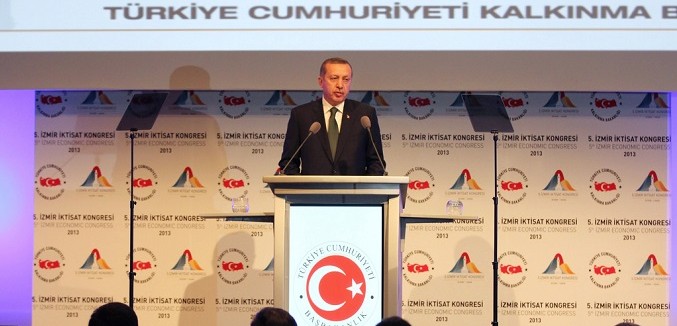Turkish figures are scrambling to halt a slide in Ankara’s regional stature and in the domestic position of its ruling Justice and Development Party (AKP) government, amid new polls showing declines in how people inside and outside Turkey view the country and the AKP. Hurriyet Daily News reported today that the percentage of Turks who feel that AKP’s foreign policy is “successful” has dropped 11 points since 2011, to 26.7 when measured last month.
Some of the most striking findings are on the government’s policies toward Egypt. Some 48 percent of those surveyed said they found Turkey’s policies after the coup in Egypt “unsuccessful”; while those who said they found them “successful” is 29.8 percent. While Turkey has been one of the fiercest critics of the military coup in Egypt, Prime Minister Recep Tayyip Erdoğan’s harsh rhetoric about Egypt’s new rulers has prompted the administration in Cairo to expel Turkey’s ambassador, reducing diplomatic relations to a lower level.
The Daily Star yesterday conveyed polling results showing a similar trend regionally, describing how “Turkey’s popularity in the Middle East has dropped sharply over the past two years” in light of what the outlet described as “Ankara’s sometimes controversial foreign policy strategy.” Erdogan’s support for the Brotherhood is widely viewed as a function of a more basic regional gamble made by the AKP, under which the Islamist party allied Turkey with the Brotherhood and Qatar to anchor one of three emerging regional camps. That bloc aligned itself against a second camp – compromised of the U.S.’s traditional Sunni allies and Israel – as well as against a Shiite camp dominated by Iran and its Lebanese and Syrian proxies. Turkey and Qatar this week signed a pact designed to boost energy cooperation between the two countries.
[Photo: World Bank Photo Collection / Flickr]




